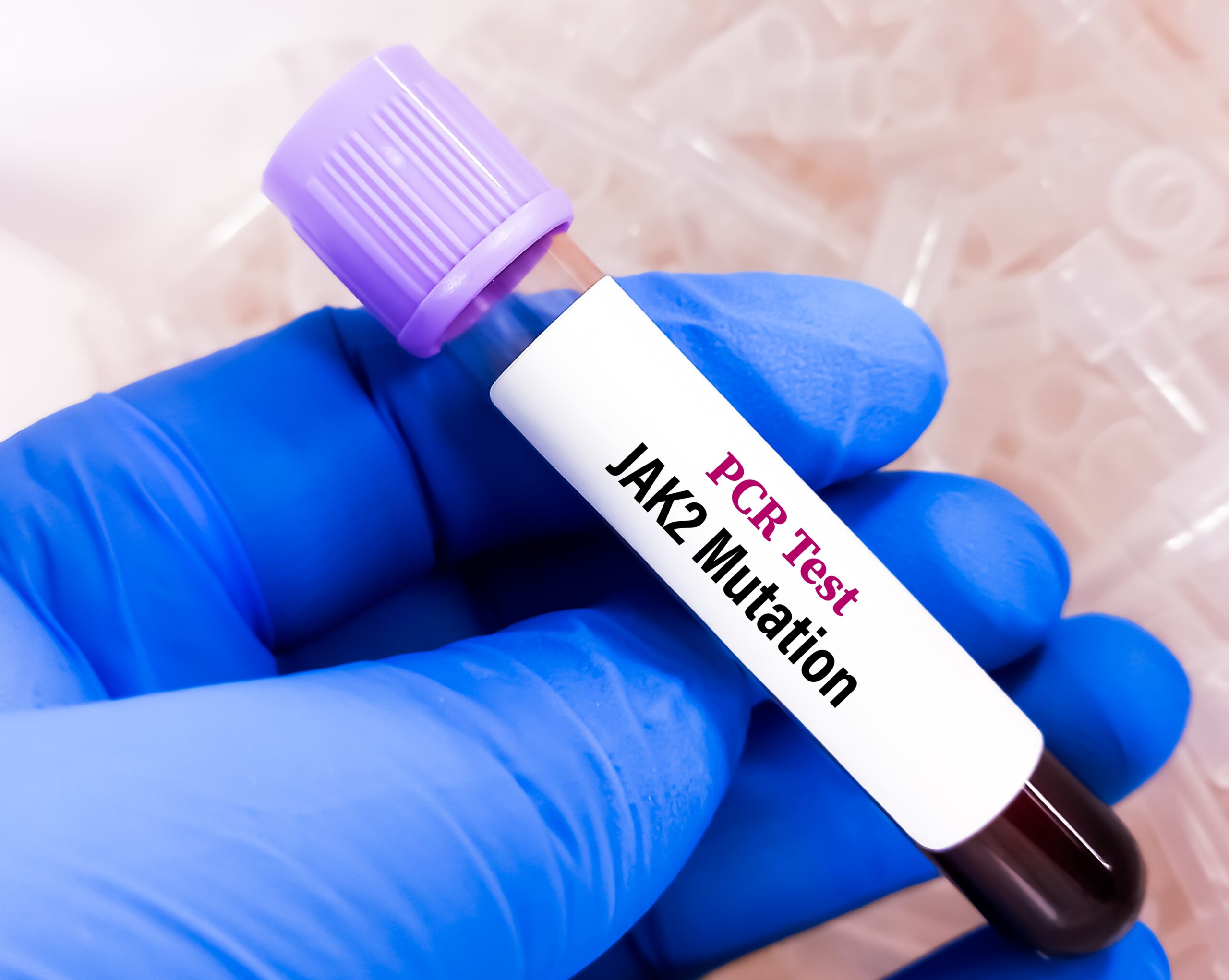
Serial sensitive molecular monitoring of Janus kinase 2 (JAK2) at defined points is a viable predictive marker of relapsed myelofibrosis (MF), according to a study that will be presented at the 65th ASH Annual Meeting & Exposition, which is taking place December 9-12 in San Diego, California.
In this retrospective analysis, Rithin Nedumannil and colleagues analyzed 31 patients with JAK2 V617F-mutated MF who underwent allogeneic stem cell transplantation (SCT) between 2016 and 2022. The investigators assessed clinicopathological features, allogeneic SCT characteristics, treatment response, graft-versus-host disease, and outcomes.
The findings of a receiver operating characteristic analysis suggested that JAK2 V617F variant allele frequency (VAF) on days +100, +180, and +360 post-allogeneic SCT was a significant predictor of eventual relapse.
“In this study, doubling of JAK2 VAF at days +100 and +180 post-[allogeneic] SCT was associated with relapse. These data support the notion that sensitive molecular detection of JAK2 may have a role akin to [measurable residual disease] in informing the preemptive use of immunotherapeutic intervention in this setting, including immunosuppression withdrawal and/or donor lymphocyte infusions,” the researchers concluded.
Reference
Nedumannil R, Karmi T, Blombery P, et al. Sensitive molecular detection of JAK2 V617F is a predictive marker of relapse in patients with myelofibrosis after allogeneic stem cell transplantation. Abstract #629. Presented at the 65th ASH Annual Meeting & Exposition; December 9-12, 2023; San Diego, California.







 © 2025 Mashup Media, LLC, a Formedics Property. All Rights Reserved.
© 2025 Mashup Media, LLC, a Formedics Property. All Rights Reserved.